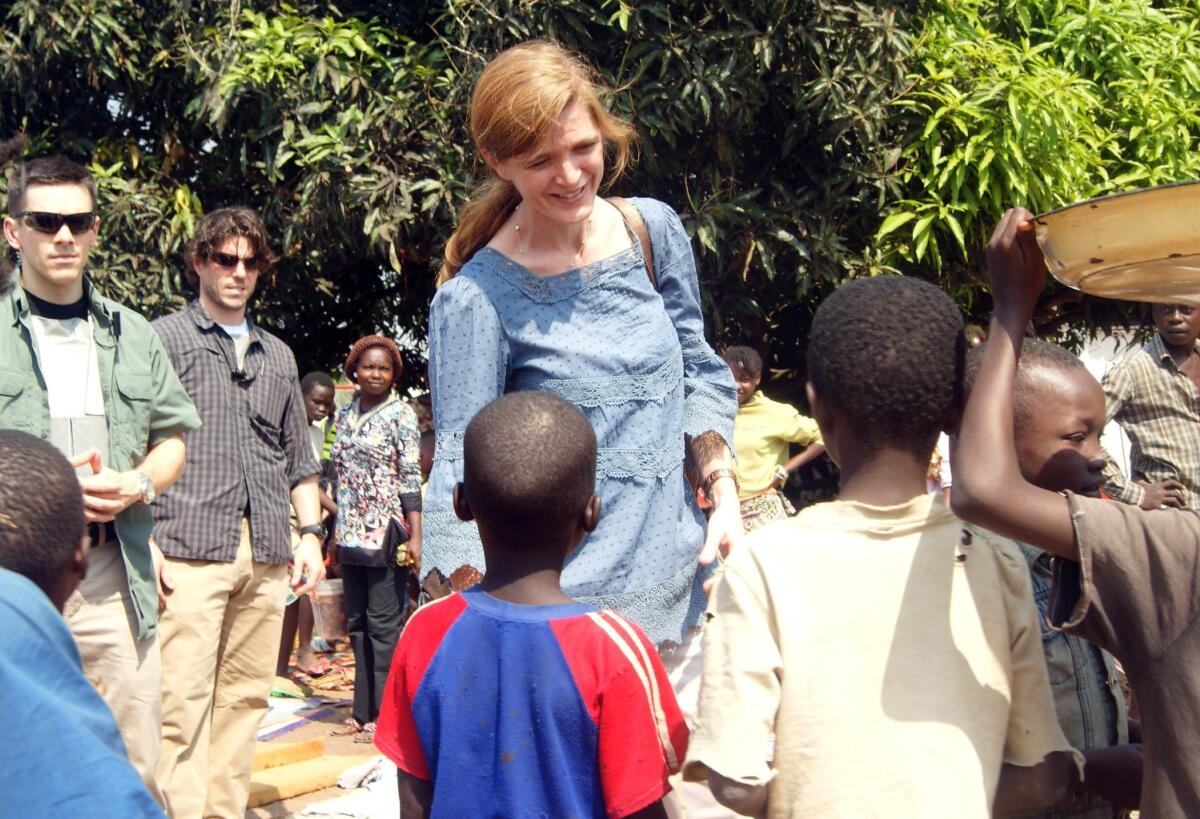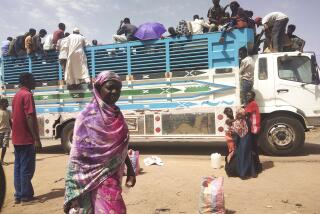U.S. envoy arrives in Central African Republic amid sectarian clashes

WASHINGTON – U.S. Ambassador to the United Nations Samantha Power on Thursday pressed leaders of the Central African Republic to halt sectarian killings in their nation. Her eight-hour visit underscored the challenges facing U.S. efforts to end the conflict.
Power, who made her name as an anti-genocide crusader, told the transitional government and local religious leaders that the Obama administration was deeply troubled by the Muslim vs. Christian killings and was ready to increase efforts to help.
U.S. officials “are deeply concerned at the suffering of recent weeks,” she told reporters in Bangui, the capital. “Those responsible for atrocities will be held responsible.”
In the nine months since a mostly Muslim rebel force overthrew the mostly Christian government, sectarian attacks on civilians have mounted steadily. About 500 were killed in the capital this month, and more than 600,000 are believed to have been displaced from their homes by the fighting.
A senior U.N. official has called it a “pre-genocidal” situation.
Though the Obama administration has committed to a policy of “never again” allowing genocide, it is also eager to limit the costs of peacemaking, especially in countries such as the Central African Republic where it has no strategic interests.
As a result, the United States has so far offered humanitarian aid and logistics support to French and African peacekeeping troops but has ruled out military intervention and balked at the idea of an expensive United Nations force.
Power, an advocate within the administration for a greater effort, spoke with reporters Wednesday in a conference call from Nigeria of the need to avoid the type of massacres that occurred in Rwanda and Somalia. But she was also careful to limit how far she was committing her government.
“We all have a responsibility to help them move away from the abyss,” she said. But most of the burden must be carried by the country itself, which “really must, itself, step up.”
France two weeks ago began sending in a force of 1,600 troops, and U.S. cargo planes have begun ferrying in an African Union force that is expected to increase to 6,000. The United States has set aside $100 million for military aid, and Thursday it announced $15 million in humanitarian aid, in addition to $24 million allotted for 2013.
Power’s most important meeting was with Michel Djotodia, the former rebel leader who is now the Central African Republic’s transitional president. Djotodia has been a worry to Western officials because of reports that he has added thousands of mostly Muslim Seleka militiamen to national security forces in an apparent effort to consolidate his power.
“The disarmanent of armed groups is critical,” Power said. “Only with this disarmament do we think that this violence can come to an end.”
Twitter: @richtpau
More to Read
Start your day right
Sign up for Essential California for news, features and recommendations from the L.A. Times and beyond in your inbox six days a week.
You may occasionally receive promotional content from the Los Angeles Times.







